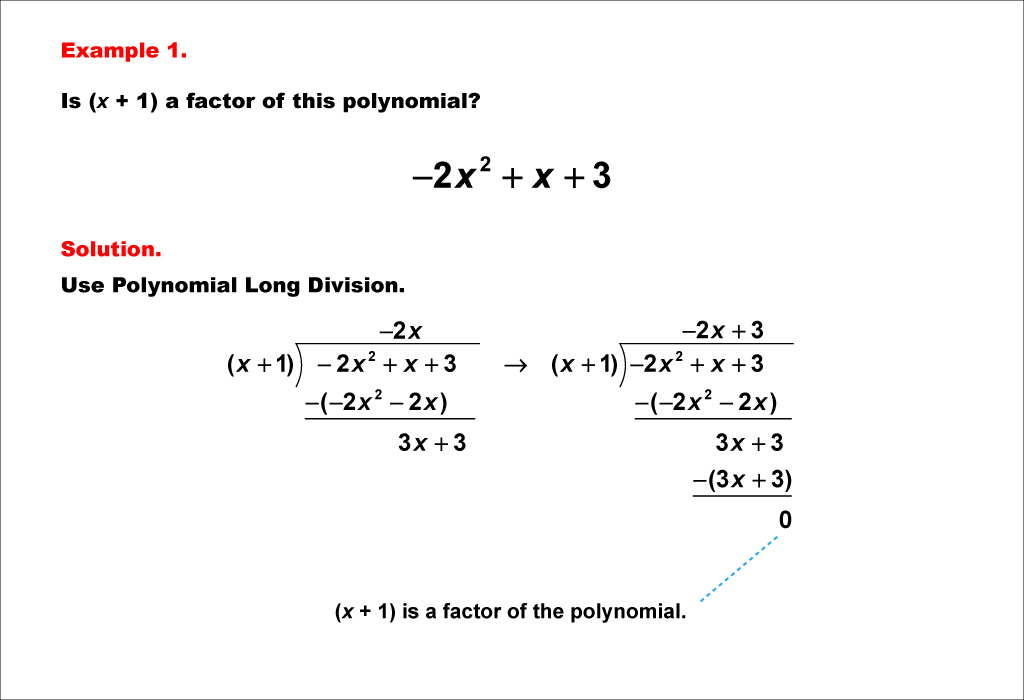
Display Title
Math Example--Polynomial Concepts--Polynomial Long Division--Example 01
Display Title
Math Example--Polynomial Concepts--Polynomial Long Division--Example 01

Topic
Polynomials
Description
Determine if (x + 1) is a factor of the polynomial -2x2 + x + 3. Perform polynomial long division by dividing -2x2 + x + 3 by (x + 1). First, divide the leading term -2x^2 by x to get -2x, and proceed with the subtraction and simplification steps. After repeating the division and subtraction steps, the remainder is 0. Since the remainder is 0, (x + 1) is a factor of -2x2 + x + 3.
Polynomial division is a technique used to divide one polynomial by another, breaking down complex expressions into simpler forms. This collection focuses on examples that illustrate polynomial long division, a method crucial in algebraic manipulation and in understanding factorization and remainder determination.
Seeing multiple worked-out examples is essential for students, as it reinforces the steps involved in polynomial division and provides diverse scenarios that strengthen understanding and confidence.
Teacher’s Script: As we explore polynomial division, let's look at this example. In this case, we are dividing using the divisor provided to see if it’s a factor. Follow each step to observe how terms are divided and remainders calculated. Pay attention to how we align terms and subtract accurately.
For a complete collection of math examples related to Polynomials click on this link: Math Examples: Polynomial Long Division Collection.
| Common Core Standards | CCSS.MATH.CONTENT.HSA.APR.B.3, CCSS.MATH.CONTENT.HSA.APR.B.2 |
|---|---|
| Grade Range | 9 - 12 |
| Curriculum Nodes |
Algebra • Polynomials • Polynomial Expressions • Polynomial Functions and Equations |
| Copyright Year | 2021 |
| Keywords | polynomials |